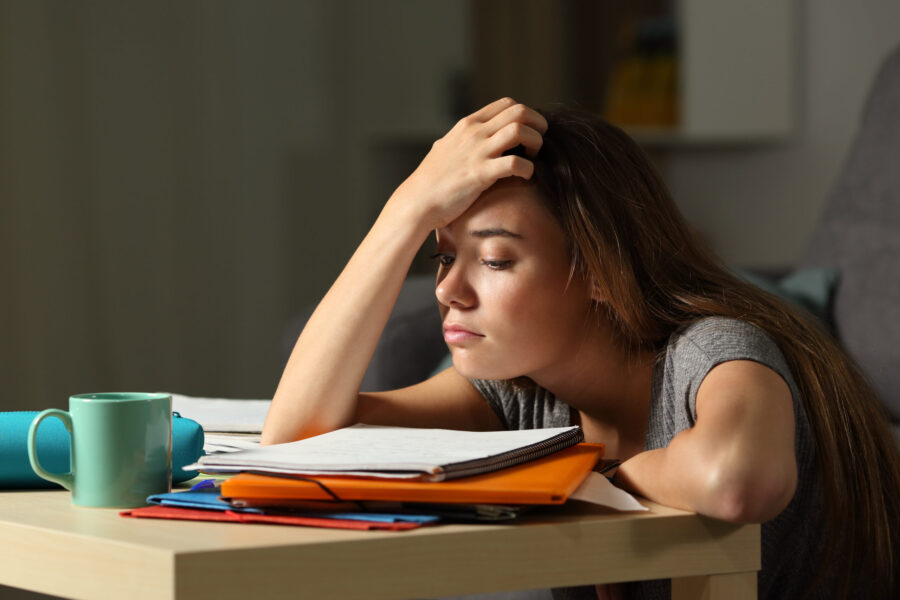Sleep Directly Linked to Mental Health
We’ve all experienced how “a good night’s sleep” can make you feel better. But few of us realize how interlinked sleep is to mental health.
“Just like our electronics need to be charged, sleep may recharge or reset the brain to optimize functioning,” says Elizabeth Blake Zakarin, an assistant professor of psychology (in Psychiatry) and a clinical psychologist at the Columbia University Clinic for Anxiety and Related Disorders.
Columbia Psychiatry News spoke with Dr. Zakarin about the impact of sleep deprivation on mental health and how to optimize sleep. Direct excerpts from that conversation follow:
On the link between sleep and mental health
“Many of us know that we feel better after “a good night’s sleep” and more grumpy or foggy if sleep deprived. And there is now robust evidence similarly supporting that sleep is critical to not only our physical health but also our mental health. Poor or insufficient sleep has been found to increase negative emotional responses to stressors and to decrease positive emotions.”
“While more research is needed to understand the mechanisms underlying the connection between sleep and mental health, we know that sleep is important to a number of brain and body functions engaged in processing daily events and regulating emotions and behaviors. Sleep helps maintain cognitive skills, such as attention, learning, and memory, such that poor sleep can make it much more difficult to cope with even relatively minor stressors and can even impact our ability to perceive the world accurately.”
On the psychological effects of sleep deprivation
“Not getting enough sleep or poor-quality sleep can increase risk for mental health disorders. While insomnia can be a symptom of psychiatric disorders, like anxiety and depression, it is now recognized that sleep problems can also contribute to the onset and worsening of different mental health problems, including depression, anxiety, and even suicidal ideation.”
“Sleep deprivation studies show that otherwise healthy people can experience increased anxiety and distress levels following poor sleep. Those with mental health disorders are even more likely to experience chronic sleep problems and, in turn, these sleep problems are likely to exacerbate psychiatric symptoms and even increase risk for suicide. The good news is that there are ways to improve sleep quality and quantity, so identifying and addressing sleep problems is critical to alleviating the severity of psychiatric disorders.”
On the link between food and sleep
“Reduced sleep has been linked with increased eating and higher risk for weight gain and obesity. Conversely, studies show that getting more sleep can lead to consuming fewer calories and improve weight loss.”
“While some foods, such as milk products, fish and fruit (for example, kiwis and tart cherries) have shown some sleep-promoting effects, research is too limited to draw definitive conclusions or recommendations about specific foods to help sleep. Growing research suggests that the quality of diet or having sufficient nutrients can impact the quantity and quality of sleep. Low fiber, high saturated fat, high sugar diets have been associated(link is external and opens in a new window) with poorer quality sleep. Another large study(link is external and opens in a new window) found that deficits in nutrients, like as calcium, magnesium, and vitamins A, C, D, E, and K, were associated with sleep problems. As such, it’s likely most important to focus on eating a balanced and consistent diet and creating healthy food-related sleep habits, such as limiting caffeine intake in the afternoon/evening and trying not to eat large meals too late.”
How to establish healthy habits to get better sleep
- Try to keep a consistent sleep schedule, waking up around the same time even on weekends.
- Set a bedtime that is early enough for you to get at least 7 hours of sleep. However, don’t go to bed unless you are sleepy.
- Establish a relaxing bedtime routine that helps to transition from your day.
- If you’re having trouble falling asleep, don’t lie in bed awake. If you can’t get to sleep, get out of bed, and do something relaxing until you feel tired.
- Create a healthy sleep environment– avoid bright lights and loud sounds, keep the room at a comfortable cool temperature, and try to limit electronics in your bedroom.
- Exercise regularly (but not within the few hours before going to bed).
- Avoid caffeine and nicotine late in the day and limit alcoholic drinks before bed.
To learn more about night owls and larks, treatments for sleep problems, and shifting the cultural perception of sleep to align with science, read the full interview here.
Or watch Dr. Zakarin’s 3-minute video on the link between sleep, mental health and suicide here.



